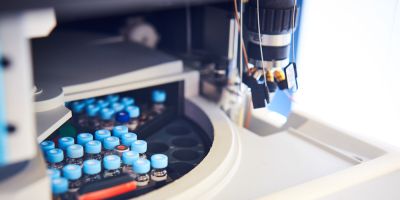Researcher to use supercomputer to 'hack' Ebola
A £200,000 grant secured from the Wellcome Trust will help to find drugs to cure the Ebola disease.
A team from the Schools of Chemistry and Molecular and Cellular Biology will use the equivalent of password cracking software to find the chemical keys to defeating the Ebola virus.
Although several Ebola vaccines are being developed, there are currently no effective anti-viral drugs to treat people once they get infected. This is a particularly serious issues because of barriers to implementing vaccine programmes in the most at-risk communities and the difficulty of predicting where the disease will strike next. Researchers will focus on finding anti-viral drugs.
Instead of the traditional approach of biologically testing hundreds of candidate drug compounds in the lab, the researchers will run computer software loaded with a library of about a million drug compounds and match them against the atomic structure of the Ebola virus’s key proteins.
The second phase of the project will then test the most promising compounds to see if they inhibit Ebola-like molecules in biological tests.
Colin Fishwick, Professor of Medicinal Chemistry, will lead the computer-based phase of the study. He said:
"The use of the computer hugely increases our ability to identify the right compounds. It is a bit like trying to crack a password by brute-force: we are able to run through hundreds of thousands of drug compound structures to see if they fit into key 'holes' we have identified in the structure of the virus.
However, our computers are not dealing with strings of characters but minutely detailed 3D maps of molecules. We are matching key atomic details of the compounds and virus molecules and looking for chemicals that might block the virus’ growth and replication. It is an incredibly powerful system that transforms our ability to rapidly identify new drug leads."
The project is looking for anti-viral drugs capable of combating Ebola in infected patients, rather than vaccines.
The study will focus on two key components of the Ebola virus: its NP and VP30 proteins. The atomic structures of both have been mapped in high resolution and both are known to be critical to the virus’ replication and growth. Two other proteins - the L and VP35 proteins - will also be studied by the team, which includes Dr Thomas Edwards, an expert in protein structure, and Dr Richard Foster, a medicinal chemist.
All of the researchers are members of The Astbury Centre for Structural Molecular Biology, which brings together scientists from across the University of Leeds to allow interdisciplinary approaches to understanding the molecular basis of life.




